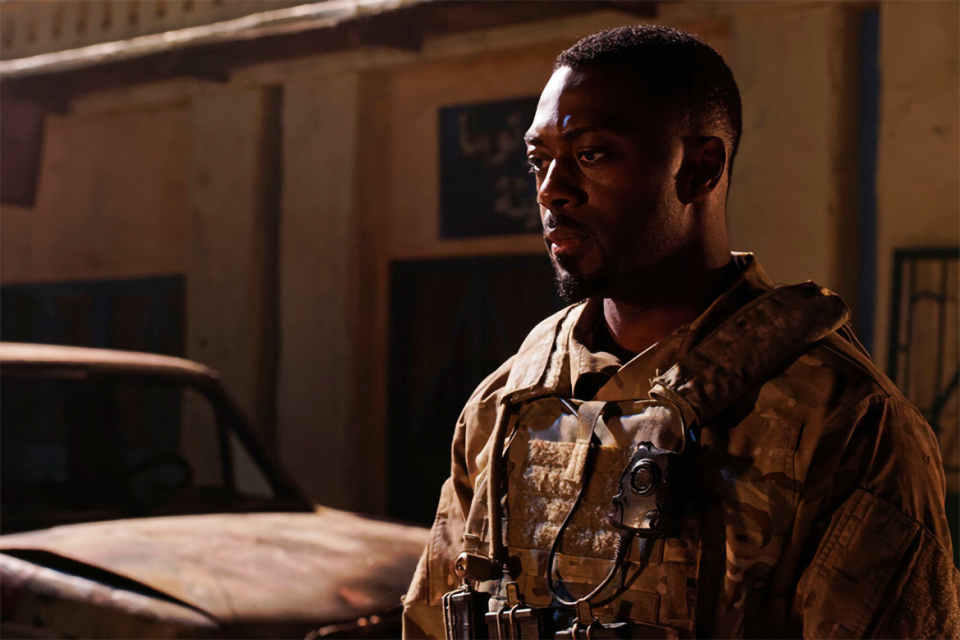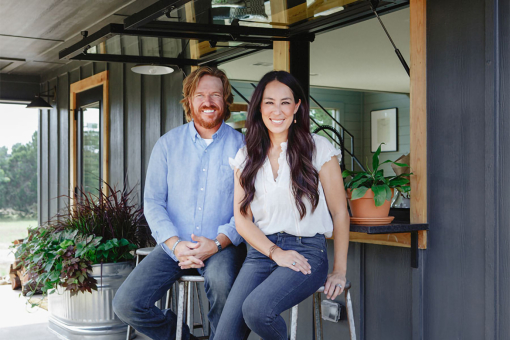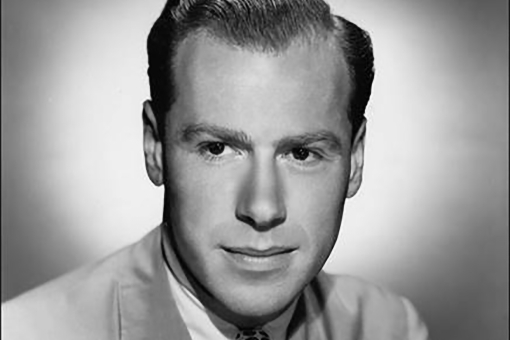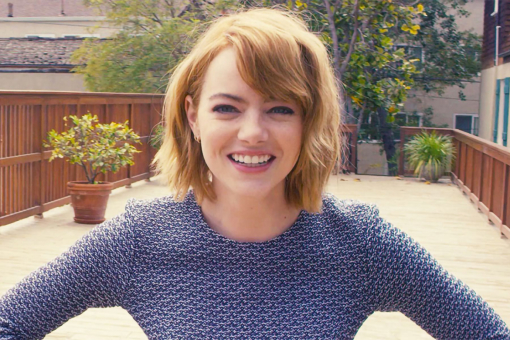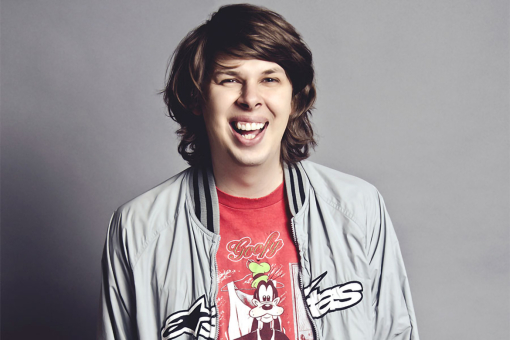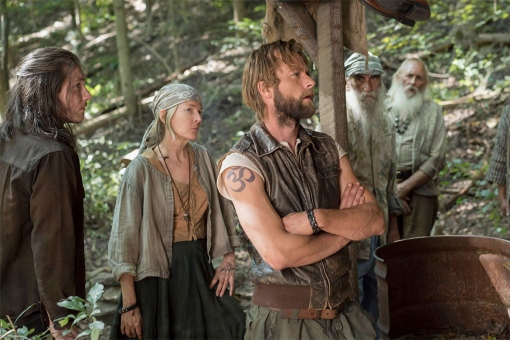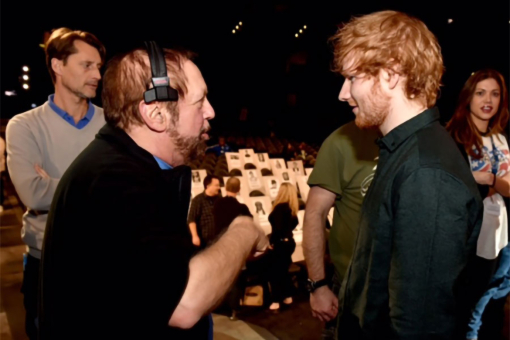Like the dreams we wake from feeling slightly blurred at the edges – did what happen occur here in reality or in our dream - USA Network’s Falling Water toys with the placement of events: was it real or were the characters dreaming?
“What if our dreams are like tiles in a grand mosaic we’re all dreaming together?” asked the pilot last season, introducing us to what corporate security executive Burton (David Ajala), photographer and trend spotter extraordinaire Tess (Lizzie Brochere) and Taka (Will Yun Lee), a detective known as the Hunch.
Each has an issue that confronts them in their dreams: Tess is certain she had a baby who was taken from her; Taka has visions of his invalid mother and Burton is in love with a woman he’s unsure is real.
Producer Gale Anne Hurd doesn’t have much time to dream, at least not in her sleep. Besides executive producing Falling Water, she EPs on Walking Dead, Lore, Fear the Walking Dead, and the just-announced Slaughterhouse-Five while shuttling between locations and admits that she gets it all done by “sacrificing a lot of sleep and racking up a lot of frequent flyer miles.”
But one thing she does seem to have time to do is find and tell stories that pose fascinating questions, and then proceed to answer them.
Hurd, who started her career working as an executive assistant to Roger Corman, prolific helmer of classic B-movies, first struck out on her own in 1982, when she formed the Pacific Western Productions, producing The Terminator (which she co-wrote with James Cameron), The Abyss and Aliens (all directed by Cameron, whom she later married and divorced).
You could call her, for lack of a better word (and one might not exist), a quintessential badass. Besides her command over multiple shows, on Twitter, she defies the stereotype of an in-the-bubble Hollywood elite. While she speaks out for liberal causes and positions, she’s a font of information on everything from net neutrality to the GOP tax bill, and okay, the Arsenal soccer team, of which she’s a fan.
At this tumultuous time in the industry, Hurd also urges women to find and support each other, and to become mentors when they can. (Hurd’s own mentor was the late Debra Hill, who wrote, co-wrote and produced films like Halloween, Assault on Precinct 13 and Escape from New York.)
As Hurd was preparing to depart for some much needed time off, she took a moment to speak with Emmys.com on the return of Falling Water (to the USA Network with a premiere on Jan. 6; Season one may be streamed from Amazon Prime).
What drew you to Falling Water?
I’ve always thought it was fascinating that neurologists and other experts have said we use at most 20 percent of our brain power, and felt the other 80 or 90 percent of our minds must be doing something. I hope. So there’s a lot of our subconscious actively working on things and I think that it’s during our dreams that we have access to some of those things.
The idea that there could be people who can leave their dreams and enter yours, or that you could leave your dream and enter another person’s was endlessly fascinating to me because it provides a canvas on which you can affect the world for good, or dedicate yourself to incredibly nefarious ends.
In a lot of your work, you pose larger questions that look at who we are as a people, or touch on a current issue, which good sci-fi often does. What are you examining here?
In the show, both season one and now season two, we look at both sides of what it is to have this ability, people who are good dreamers who are using it for good and people who are using their powerful dreams to control other people for greedy reasons.
It’s interesting because something that I’m very focused on at the moment is human trafficking. One of the things we deal with on the show is that powerful dreamers are being trafficked: Bought and sold for their abilities. [A buyer] can force you to enter someone else’s dream and affect them and influence their subconscious.
I’ve been tweeting a lot about the documentary I Am Jane Doe. It has nothing to do with the show except when I started thinking about trafficking organizations, and how one component of the show is about selling people to the highest bidder, it’s sadly not that farfetched.
On the whole, the idea that in time, we could be hearing about things like this, harnessing dreamers and the subconscious to affect waking life, doesn’t seem preposterous.
When I was in college, it was around the time that people were really focusing on parapsychology. As we know, there were divisions in the [United States] defense department focused on this because Russia was putting a lot of energy into it.
They were studying remote viewing, they were studying the idea that people might have to communicate across the world and be able to see images: one person could send an image into another person’s mind. There’s been a lot of time and effort and research money spent trying to harness aspects of our minds and our abilities that we haven’t been able to in the past.
For Falling Water, we talked to a neurologist, Moran Cerf. (Writer’s note: Cerf is a former hacker who, when he began his academic career, used non-traditional means to examine the human brain.) As it turns out, people are now developing the ability to almost create videos of what a person is dreaming, just by watching brain activity. There’s some really incredible research out there.
As it turns out, the best science fiction is often leading the way to things we’ll see in the present.
Terminator wasn’t so crazy to imagine.
Now people are talking about Skynet as if it were really real. And of course it’s a stand-in for the military-industrial complex and we have to find out that the internet was created by DARPA (Defense Advance Research Projects Agency). People are creating autonomous tanks that look like hunter killers!
I think what’s great though, is that – throughout your work but looking even at Terminator and now Falling Water, you maintain the humans at the center of these things. It’s not sci-fi that’s solely focused on showing the viewer cool toys.
The thing I find really compelling about Falling Water is you have this diverse group of people who don’t even realize they have this ability. For example, Tess (played by Lizzie) is able to track down her son, a son she was convinced she had and people told her she was crazy that she never gave birth. And to me that’s such a powerful message that she wouldn’t give up, and through this ability she’s able to get her son back.
I appreciate that she’s strong in her conviction, and her certainty she knows what she knows, despite what people might be telling her.
Women have been gaslighted in so many different ways, and that’s sort of the nth degree of it. And she’s a very strong character. I love that David, who plays Burton, he’s madly in love with someone he can’t even prove is real because he seems to be interacting with her only in his dreams.
And Taka, whose whole life has been affected by his mother being catatonic since he was quite young that he can reach her and have a relationship with her in their dreams, as twisted as weird as that might be.
That’s another facet of great sci-fi, its ability to say something about who we are.
And our relationships. It’s about mothers and their children, whether it’s Taka and his mother or Tess and her son, and our relationships, the people we’re in love with as with Burton.
And then you have the powerful. The people at The Firm [where Burton does security] and people like Bill Borg, who is a tech billionaire.
Tess’s reaction to Borg in the pilot, that she seems so skeptical of him, was intriguing.
There’s always that paranoia when you have an ability and someone comes to you. Are they really who they say they are, or are they another person who simply wants to use you for their own purpose and goals?
You’ve said your work focused on the ramifications of technology and I’ve seen you posting about net neutrality. What is it like making entertainment right now, with so many channels and so much dissected online?
Streaming and more outlets, that’s good news.
Yes, that’s a great thing.
But what we’re seeing now and there’s so much consolidation going on, with Disney-ABC buying Fox… to me it’s all the human cost and human opportunity, in that sense they’re predicting 5,000 to 10,000 jobs lost. I think that human cost should be factored into stock prices. I think the world would be a much better place if social good were factored into the stock price and I don’t think that’s farfetched.
We have so many activist investors right now, and the minute they try to good but they’re ripped apart.
2017 has been a hard year for people trying to do good. Or at least to process and keep up with everything that we have to fight for.
I hope in 2018, regardless of where we’re ending 2017, that people can become more aware. It’s almost like our dreamers in Falling Water who aren’t aware of the stakes that our out there, because they’ve been focused in their world. In season two, they find they’re part of something larger.
It’s almost like they’ve been asleep in their dreams and they’re waking up to something bigger. It feels very allegorical in a way.
We all need to wake up and be aware that it’s so easy to be manipulated. So that’s my hope is that we can look out for each other. That’s another thing that happens in our second season is our dreamers come together, which is another thing that’s important to me: Find and create your own family and support each other.
That you’ll be more powerful as a whole than on your own. Now, switching a little, I know it was just announced you’ll be an executive producer [along with showrunner Patrick McManus, who recently launched Happy! on Syfy and Jon Brown and Bradley Yonover] on [Universal Cable’s adaptation of Kurt Vonnegut’s] Slaughterhouse-Five. That’s such a huge book, how are you approaching it?
I couldn’t be more excited, it’s such a seminal book. It deals with Billy Pilgrim, a character who exists in multiple times in his life. It’s about the consequences and the costs of war and also about not necessarily fitting in. There are so many aspects that make it as relevant now as it was [when first published in 1969].
The time is absolutely right. Now, you’re often called upon as a role model for women in the industry. And we are at a strange time in the industry but the fact you’ve created so many strong female characters and been a strong player in the industry, with where things are right now, do you have thoughts on what’s to come for women in Hollywood?
I have to go back. I started in the ‘70s under Roger Corman and he believed in complete equality. It was the best possible place to work. He had women in positions of authority always. Including his partner Julie Corman who produced with him. The first set I worked on had a woman director.
I didn’t realize that was an anomaly. I wish I could say that things have really improved by leaps and bounds since the 70s but they haven’t. I have to say, women need to work together.
The late [producer and screenwriter] Debra Hill was someone who was always not only a friend of mine but also a mentor. I think we need a lot more of that, and I’m happy to see organizations that helped me when I was starting out, like Women in Film, stepping up and saying, if you feel you’ve been sexually harassed and are having a hard time speaking up, come to us.
We need to be more supportive now than ever, because I can’t tell you all the number of people who have stories of sexual harassment. People are suffering from PTSD. That’s not a joke or an “oh, come on.” It is incredibly traumatic and people have buried a lot of their experiences. And there’s a reason why so much is coming to light and there’s a torrent right now.
Do you think we’ll see more women creators after some of the dust settles?
Well, that’s one thing that I love about television. It’s a collaborative medium. You work with a number of producers, a writing staff. It’s a great environment for someone like me, because it’s so collaborative. And I think we’ll be seeing more and more women showrunners, like Natalie Chaidez, [showrunner on Queen of the South, on USA], who I worked with on a show for Syfy, Hunters.
I think there will be more women showrunners, and that can only help storytelling and the work environment.




